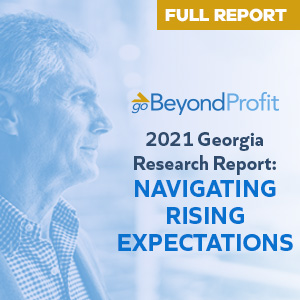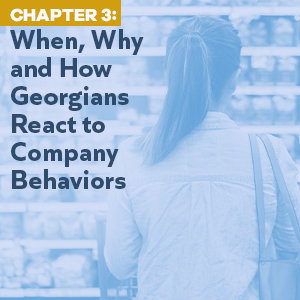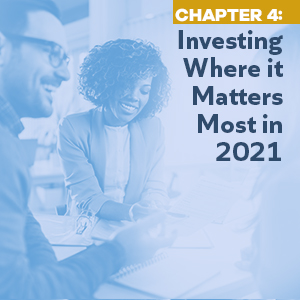Chapter 1:
Heightened Expectations Require New Executive Approach
Summary: Across the board, the majority of Georgians have heightened expectations of businesses and their leadership. As businesses focus on recovery, there’s an opportunity to lean into this dynamic with renewed energy around employee care and empathetic leadership traits. The data repeatedly points to a new executive imperative we call “Emotional Generosity” as essential for developing positive employees and loyal customers.
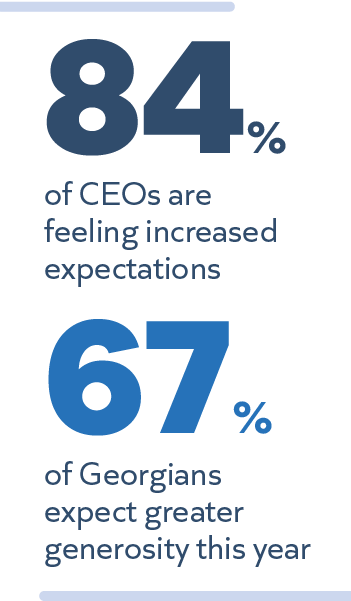
CEOs are feeling it: the world holds heightened expectations for business to be a force for good. Most Georgians (83%) continue to think it’s important for the businesses in their lives to demonstrate generosity and community outreach. And a full 67% expect more generosity since the events of 2020.
Senior leaders (84%) definitely feel these increased expectations and the vast majority (90%) characterize this as positive opportunity vs. negative pressure. They’re feeling elevated expectations from every corner: the general public (66.7%), their employees (53%) and customers (44%). A noteworthy level of reinforcement comes from their Boards of Directors (17%).
What people value most in corporate citizenship.
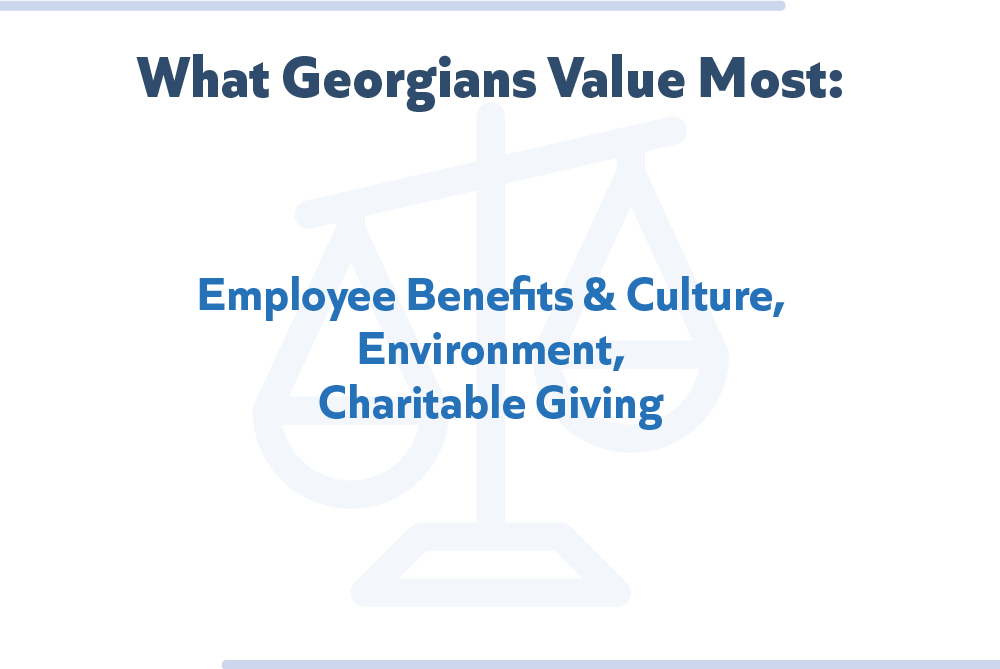
When we asked employed adults about the importance they placed on various expressions of corporate character, the balance of what was important was surprising.
Three of the five top priorities ranked very important or important revolved around employee care including generous benefits (88%), equitable/inclusive business culture (76%), and purpose-driven culture (74%), which reinforces the importance employees place on work life.
Notably, adults placed a surprisingly high value on environmental practices (78%), followed closely by charitable giving (77%). Given the extraordinary strains employees faced during the global pandemic, the fact that more respondents ranked care for the planet second and charitable giving third — both higher than some employee culture initiatives — conveys that expectations are elevated for broad-ranging demonstrations of corporate character.
Responsibly sourced materials (72%), employee volunteerism (71%) and cause marketing/external communications (64%) all ranked lower, yet still garnered a compelling high level of importance.
The research shows benefits for leaders who:

Continue to demonstrate empathy. More than 80% of Georgians want to see leaders demonstrate empathy first internally at work (88%) and then externally to the broader community (82%). This is an increasing trend over 2020 and senior leaders are rising to the challenge, closing last year’s gap between their performance and its importance to employees. This appears to be the result of intentional efforts on the part of business leaders who express prioritizing demonstrations of empathy and care both internally (75%) and externally (66%).

Increase visibility and accessibility. Georgians also place a higher level of importance on leaders’ visibility and accessibility (86%) and communicating well and with transparency (87%) than they did last year. But they rate leaders at the same performance levels, causing a greater gap between performance and importance. To close the gap, leaders need to increase these communications practices.

Thoughtfully address social issues with employees. Notably, in the context of behaviors they want to see their employers demonstrate, 68% of Georgia employees want to see their bosses addressing important social issues. This is far lower than the 91% of Georgians who believe business leaders in general should share their point of view about social issues (as outlined in Chapter Two). This reinforces that the desire to receive employers’ care, empathy and practical visibility is paramount.
Leaders’ motivation bodes well for authenticity.
When asked about their motivations for leading generously, two-thirds of executives (65%) cited purpose and values, with the second primary motivation being love and empathy (20%). This bodes well for leaders to trust their instincts in delivering with authenticity.
The pandemic accelerated the demand for them to publicly embody empathy, transparency and vulnerability; soft-skills historically undervalued because these were not often seen as the skills necessary to achieve business success.
Heightened expectations call for a critical new leadership quality: “Emotional Generosity.”
These forces begin to usher in a new executive approach we’ve dubbed “Emotional Generosity.” This means leaders demonstrating empathy as they care for employees, exemplifying consistent values, and engaging in community issues with care and time, not just financial contributions or words.

